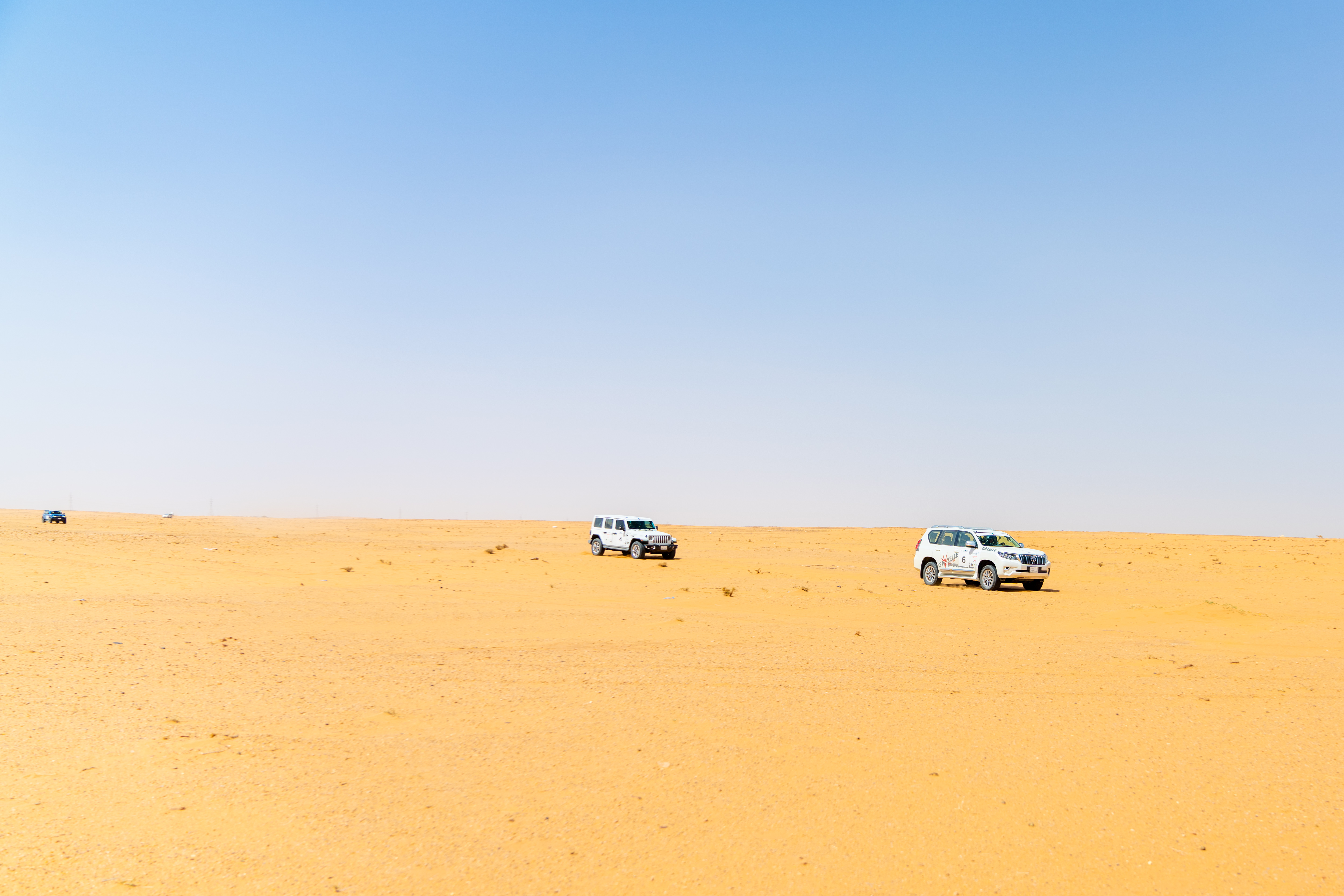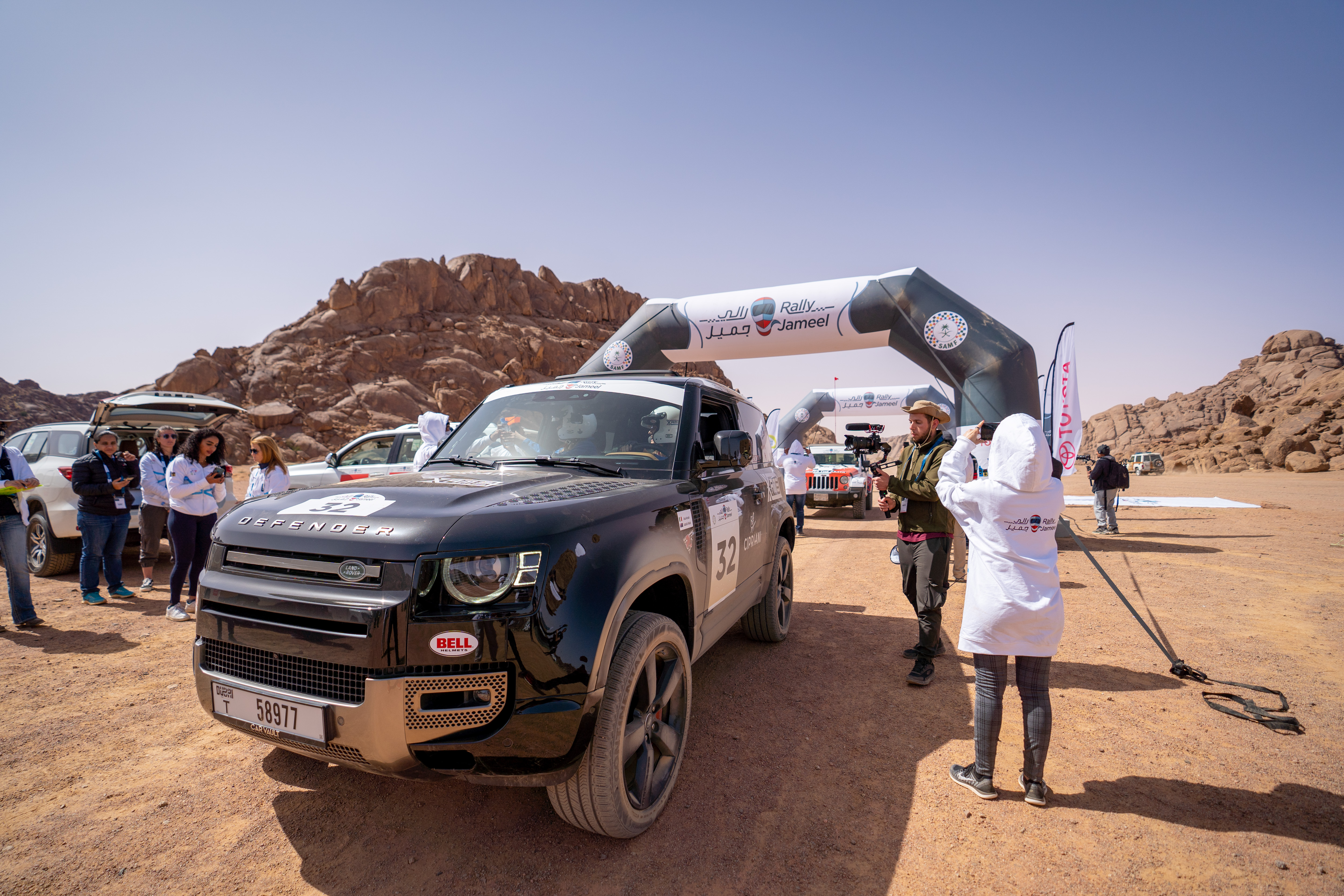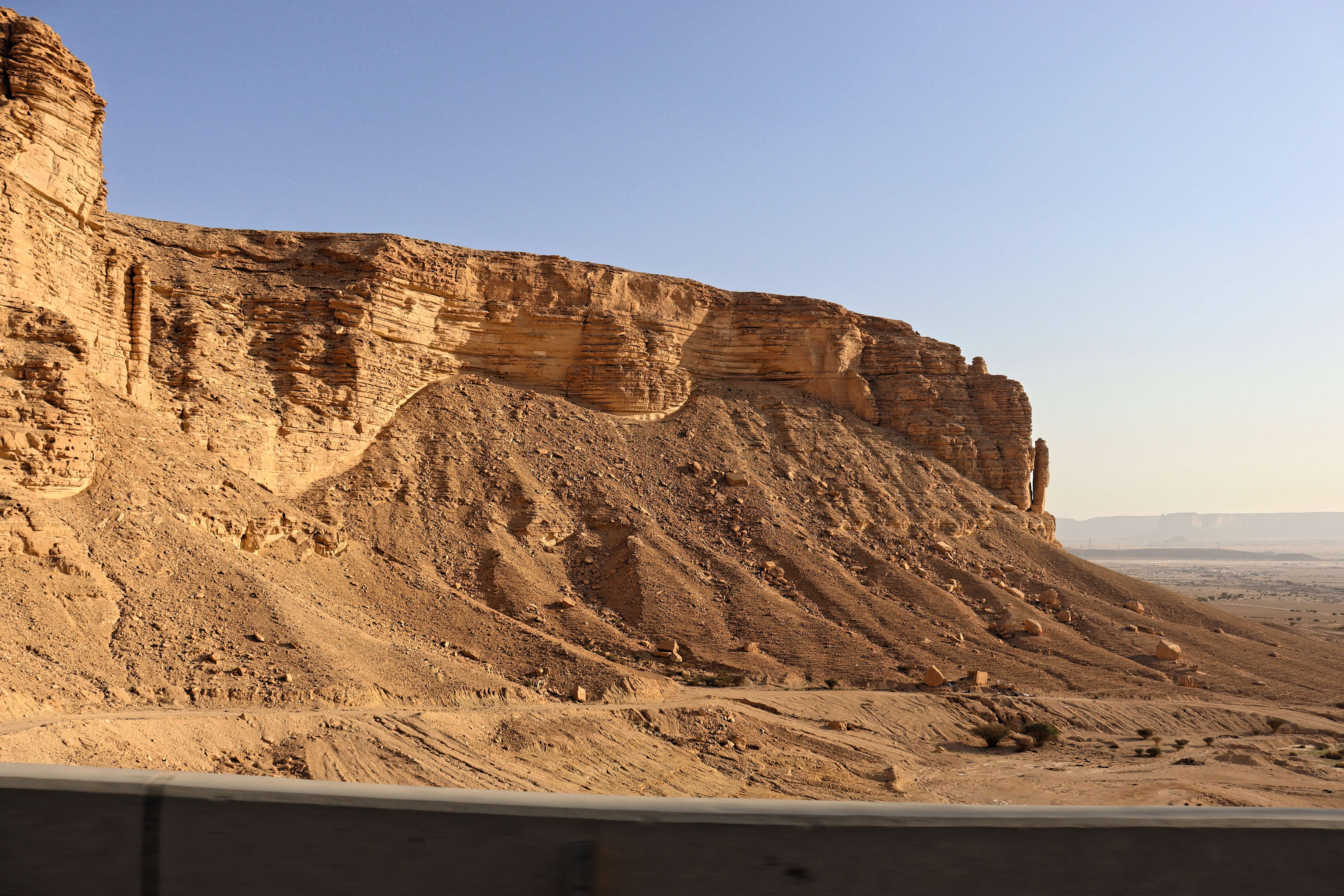In recent years Saudi Arabia has embarked on a mission of sweeping changes as part of ‘Vision 2030’ to modernize all manners of its society and economy.
Part of that vision is greater inclusion for women, who traditionally haven’t been on an equal footing to men in the kingdom. Motorsport has played a key role in shining a light on Saudi Arabia’s more inclusive modern society, firstly with an all-female Formula E test at the end of 2018, and more recently with the first Formula 1 showruns featuring W Series racer Abbi Pulling and Aseel Al Hamad, the Saudi Arabian Motor Federation’s first female board member.
But earlier this month the country held a much more substantial event, as 35 teams comprising 70 female drivers took part in Rally Jameel, Saudi Arabia’s first all-female rally.
Extreme E’s impact correspondent Izabella Rekiel was one of the participants, and speaking to DirtFish she offered a unique perspective on the contest that took place over March 16-19.

“It was not just to create this first event, but also to really empower the women here,” she says of the competition, which is aiming to become a fixture on the international motorsport calendar.
“Part of the Vision [2030] is to empower all people in society and to give them a voice, and that includes women. So getting more women behind the wheel and getting them more comfortable.”
Of course, while many of us outside of Saudi Arabia will know that women were only allowed to get driving licences as recently as September 2017, the truth is women have actually been driving in the country for some time off-road, making the country’s first female-only competitive motorsport event a navigational rally rather fitting.
“There’s kind of this misconception,” Rekiel explains. “Everyone thinks, OK in 2017 the women were allowed to be given [driving] licences, but actually women were driving before that, it was just unofficial.
“A lot of the Saudi women that I met during the rally, they were like ‘oh yeah we know how to drive the dunes, we’ve been driving all our lives’.

“Their ‘family Sunday’ – or ‘family Saturday’ because the weekend’s different there – would be the families going out to dunes and you drive around [for a day]. For them that’s like a normal typical family weekend. So most of them know how to drive.”
The event attracted a large number of local drivers but international names too, with XE race-winner Mikaela Åhlin-Kottulinsky and enduro motorcycling legend Annie Seel among the entries.
“The Saudi women said they [were] just so grateful and so happy that international people came out of their own free will to come and experience their country – for them, already that’s a win,” Rekiel says.
“Forget the rally, for people just to come willingly and see for themselves what their country is about, what their culture is willing to offer, for them that was already quite empowering.”
On the ground, the common goal of empowerment seemed to override anything else. That’s not to say the event wasn’t properly competitive, but one thing Rekiel stresses is the strong bond forged between all of the competitors.
I was genuinely surprised by the support that we did get through the men. At one point I thought maybe this was like a gimmickIzabella Rekiel
“There was a lot of camaraderie, so me and my driving partner [Ania Arcaini], we’re complete amateurs, this was our first rally, but everybody helped each other,” she says.
“Every night we would have a briefing and big communal lunch or dinner and I’d sit there with my rally book and have Annie Seel helping me decipher something and then you’d have someone else so there was a really big feeling of camaraderie, and the organizers said this was exactly what they wanted to achieve through it, is to have women empower each other.”
The event began in Ha’il in the north-west of the country, passing through Al-Qassim and eventually wrapping in the capital city Riyadh. Along the way the competitors received plenty of support from locals.
“The track was completely open, we were racing either on the road or among the dunes, and it was really cute, we’d be on this deserted random desert road and then suddenly there’d be a bunch of men just standing there, or they brought their fold-out chairs and they’re waiting for us and waving flags, so it was kind of like a spectator sport, which I didn’t expect,” Rekiel recalls. “It was nice to see that support from the locals.

“It was more known about than I had previously thought. Every place that we went to like Ha’il, Al-Qassim, Riyadh, everybody knew about the rally.”
She adds: “I was genuinely surprised by the support that we did get through the men. At one point I thought maybe this was like a gimmick, at no point was anyone ever condescending, and I was really impressed with a lot of women.
“The organizers said they wanted it to be properly professional so it can be considered for an international motorsport event, and a lot of us got majorly stuck in the dunes and there were a lot of tires that needed to be changed and the women were right down there, getting those tires changed in the middle of the dunes. I was really impressed.
“But the local support, I was pleasantly surprised. I kind of thought that maybe the men might be a little bit condescending, but they weren’t at all. They were really happy about it.”

For those of us on the outside, knowing what we’ve been told over the years, such stories of inclusion, empowerment, and support might come as a surprise. But with Saudi Arabia keen to improve its image at rapid pace, such attitudes will only become stronger in the country.
“I’ve been coming to Saudi Arabia for four years and I had that preconceived notion before I came,” Rekiel says. “I thought I’m going to have to sit in my hotel, women are completely excluded from everything, so now coming to the rally, my motivation was to support not just the women but to support the people and to really help them with that vision that they have.
“Something I’ve definitely observed after coming for four years is that every year the change is phenomenal and at lightning speed. Even the locals themselves say they did not expect the change to be this fast. But I think it needs to be this fast.
“Humans are a creature of habit, so if you get used to something, you’re not going to like the change that comes with it, but if things keep changing all the time, you have no choice but to accept it, so with women, I remember the first year I came to Saudi Arabia, I had to put my abaya on before I even got off the plane and now people are telling me not to even wear an abaya.

“The reason I’m coming here as often as I am is I can feel the excitement and I can feel the energy behind the ambition and everybody wants to achieve what the 2030 vision basically lays out the framework for female equality, for enhancing the peoples’ lives,” she adds.
“Ninety years ago everybody was still living in tribes in Saudi Arabia out in the desert so they really want to modernize the country but I feel they’re really trying to include everyone on that path and journey so I think Saudi Arabia will become a leader in many aspects and for me I see that in sustainability and female empowerment.
“I have spoken to locals and they have said that of course you will have a population who [will disagree], because that’s what they grew up with, that’s all they know.
“It’s like your grandparents – you’re never going to change your grandparents’ opinion on something because they’re so set in their ways. Saudi people have told me that definitely you have that population that are not liking the change, however, the majority of the people are completely behind the vision. And also Saudi has the youngest population in the world and everyone is so highly educated so I think the majority are for this new way of life and for this reform.”

As for Rally Jameel itself, the event was won by Seel and Åhlin-Kottulinsky, with the highest Saudi Arabian driver (Maha Al Hamly, partnered with Spaniard Pochola Hernández) finishing third. Plans are already in place for a follow-up next year, with potential for similar events across the Middle East cropping up in the future.
“Definitely they’re going to do one next year, they definitely want to continue on with this, and I think there was some interest from the Emirates because I think they had three or four teams from there that were professional or semi-professional,” Rekiel says. “It was really an event that surprised me, especially with the camaraderie.
“It was really refreshing, that was really what I took out of those three or four days spent with those women, and the way that everybody helped with each other was really nice.”





